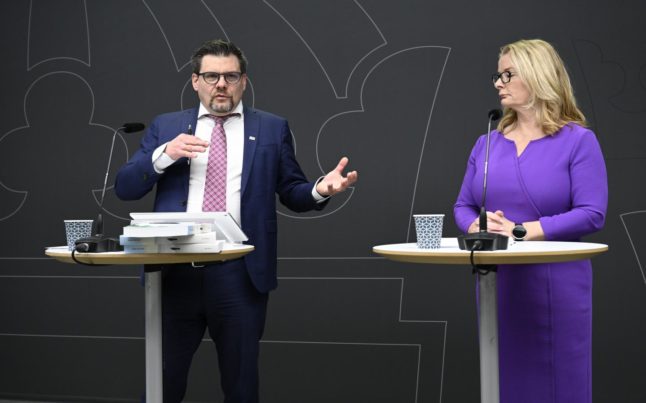The report was handed over to Minister of Education Lotta Edholm by the government’s special investigator Jonas Trolle, head of the Centre for Preventing Violent Extremism (CVE), on Wednesday.
As well as recommending that schools be given increased powers to carry out bodily searches, it proposes that they be given the possibility to search “bags and other items within the school grounds”, with specially designated staff appointed to carry out these checks.
A first interim report last summer proposed that the centre be tasked with supporting municipalities, social services and other actors to prevent school attacks.
The inquiry was originally set up by the previous Social Democrat government in a response to a number of school attacks which resulted in deaths and injuries to both teachers and students.
The current government has broadened the inquiry’s remit since then to include more types of crime, arguing that it is of benefit to society to be able to identify children and young people at risk of ending up in criminal networks at an earlier stage.
The inquiry’s final conclusions will be presented by December 20th, 2024, after which the report and its proposals will be sent out for consultation to the relevant government agencies or organisations, municipalities and other stakeholders, who can submit responses.



 Please whitelist us to continue reading.
Please whitelist us to continue reading.
Member comments